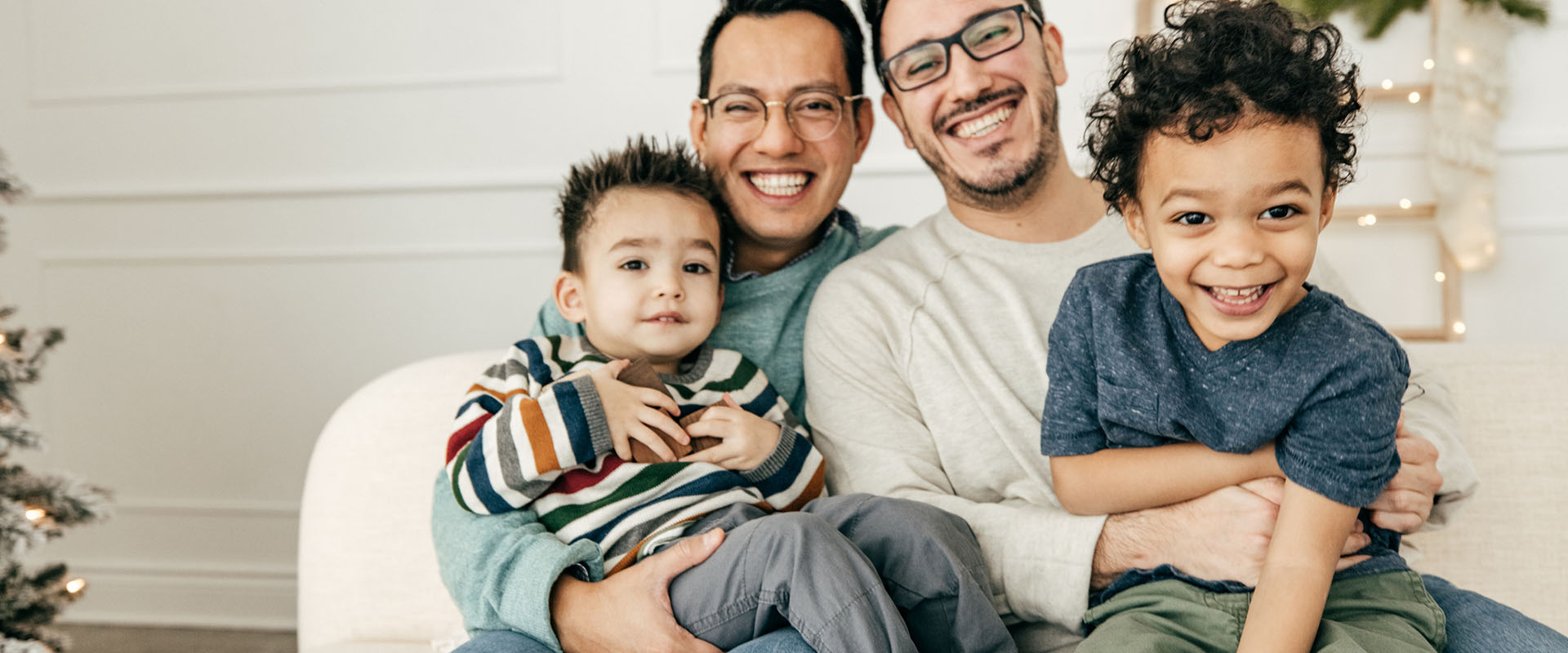Adoption and Same Sex Parenting

Although biology doesn't connect Martin's family unit, his bond with his children and partner are as strong as any other family.
We ask Martin: What does a family unit mean in today`s society? What does family mean to you?
Vegetables + love = family
When considering the subject for this blog, I started with the thoughts of my two sons, Jack (6) and Eddie (5). After all, they make up our family unit and do not yet have preconceptions of family imposed by society. Eddie gave the answer, "a lovely place, but you have to eat vegetables". Jack suggested that "family is where you are loved".
Both answers bring out the theme of love. There was no conditional concept of having a mum and/or dad, two dads, two mums, grandparents or other kinds of carer. My sons did not look to having a specific type of family, only one where (vegetables aside) they are safe and loved unconditionally.
Life in our family unit can look a bit complex, before you even factor in our sons. While my husband has a typical 2.4 children family, I come with a mix of full, half and step siblings. Between us there are vast swathes of nephews and nieces, some related and some not. We bumble along with varying degrees of familiarity, but I never introduce anyone with the 'step', 'half' or 'natural' precursor. They are simply my family and it is no one's business how we are or are not related.
Typical parenting
When it comes to our sons, a similar philosophy applies. Neither my husband nor I have any genetic connection with our sons, but this does not stop us from being a family. We care for our children, ensure they are fed, read to them every day, praise them when they succeed, argue about what they are wearing and discipline them when they are naughty.
When Jack concussed himself playing football, I sat worrying in the local hospital with all the other anxious parents and carers. If one of our sons is upset or hurt, they look for comfort with my husband or I. Anyone who is raising or wants to raise a child will recognise these everyday events, which can take place regardless of the make-up of the family.
Our definition
What does family mean to us? It means different things. At a basic level, it's the four of us - just getting through the days as best we can. However, I see our family on a broader level. It means all the people who love our sons and us:
- All their new grandparents, who have them for weekend visits and adventures.
- Our siblings, who supported us in the long journey to adoption and give experienced advice.
- It is our close friends who are there every day, helping to raise our sons to be kind people or making us cups of tea when things are hectic.
Family does not need a biological connection, merely unconditional love.
Society's definition
But what about family to wider society? When our sons first started school we were very nervous about being the only same sex parents at the gates. How would people react to our sons? Would they be treated any differently by their class? We knew that we couldn't avoid the issue and it was very likely that people would assume they were adopted. These concerns were rooted in our own traditional perception of family.
When we spoke to our sons later that day, their only concerns about school were: will I make friends and what is for lunch? Whether they had two dads was irrelevant. Jack and Eddie happily introduce us to their friends as their two dads and the parents at school have never made an issue of it. In fact there are lots of different types of families at the school gates.
What was once abnormality, is now normality. Like us, each type of family is simply trying to bring their children or grandchildren up as best they can and worrying about how they are going to get them to eat some form of vegetation for tea. Two years after adopting, I don't even think about whether our family is different. It does not worry our sons or the people we encounter, so it doesn't worry me.
Love conquers all
Society is an immensely complex thing today and the concept of family is too. Some people will always look at adopted families as different. Some people will not agree with my bringing up children in a same sex environment. But this is not the norm and I have been very privileged to receive support from across my community. Today, I think society looks at family as a unit which loves children, regardless of its make up.
Martin, Solicitor, Father of Two





